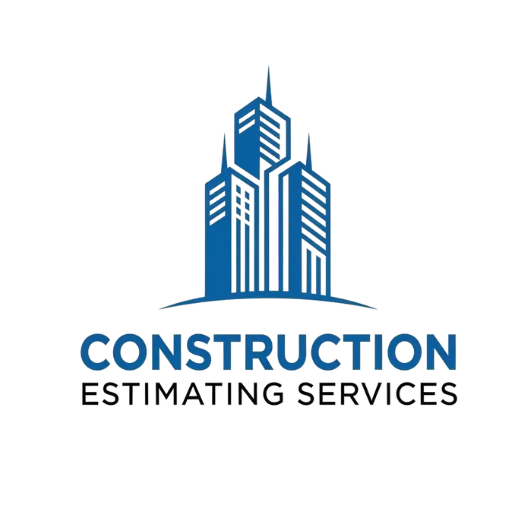Introduction: The Backbone of Successful Construction Projects
Construction estimating is the cornerstone of every successful building project. Whether you’re working on a small residential renovation or a large-scale commercial construction, the accuracy of your estimates determines your project’s financial success and timeline. Accurate construction estimating ensures that you stay within budget, avoid unexpected costs, and make informed decisions from the very beginning.
At Construction Estimating Services (CES), we specialize in providing precise, reliable estimates for a range of trades across all 50 states. Whether you need construction estimating in California, Florida, or New York, our expertise covers every trade, with specific insights tailored to the needs of each region.
What is Construction Estimating?
Construction estimating is the process of predicting the costs associated with a construction project. This includes estimating the material, labor, equipment, and overhead required for each phase of the project. Accurate estimation helps you:
- Ensure projects stay within budget.
- Identify potential cost-saving opportunities.
- Plan resources and timelines effectively.
- Avoid delays caused by unforeseen financial issues.
Without precise estimating, even the most well-planned projects can face unexpected financial setbacks. That’s why CES provides detailed, accurate estimates for all construction trades.
The Core of Construction Estimating: 30 Trades Demystified
Construction projects consist of numerous specialized trades. Each trade has its own complexities, costs, and unique considerations. Here, we break down 30 essential trades in construction, outlining their key cost factors, challenges, and how CES ensures accuracy for each one.
1. Excavation and Site Preparation
- Scope: Clearing, grading, and site leveling to prepare the land for construction.
- Key Estimation Factors: Soil type, volume of excavation, and machinery.
- Challenges: Hidden underground obstacles like rocks or water tables.
- State-Specific Insights:
2. Concrete Works
- Scope: Foundations, slabs, and structural elements made of concrete.
- Key Estimation Factors: Concrete mix, reinforcement, and formwork.
- Challenges: Variable material costs and curing time in extreme climates.
- State-Specific Insights:
- California: Earthquake-resistant concrete is mandatory in seismic zones.
- Alaska: Freeze-thaw cycles require enhanced durability.
3. Masonry
- Scope: Building walls, facades, and decorative stonework.
- Key Estimation Factors: Type of brick or stone, mortar mix, and labor intensity.
- Challenges: Handling material waste during construction.
- State-Specific Insights:
- New York: Historic masonry often involves preservation techniques.
4. Structural Steel
- Scope: Beams, columns, trusses, and other structural frameworks.
- Key Estimation Factors: Steel weight, fabrication, and welding requirements.
- Challenges: Volatility in steel prices and transportation costs.
- State-Specific Insights:
- California: Seismic compliance significantly influences steel design.
5. Carpentry
- Scope: Framing, cabinetry, and wood finishes.
- Key Estimation Factors: Lumber quality, project size, and craftsmanship.
- Challenges: Material waste and fluctuating lumber prices.
- State-Specific Insights:
- Oregon: Abundant local timber lowers costs compared to other states.
6. Roofing
- Scope: Installing shingles, tiles, or metal roofing systems.
- Key Estimation Factors: Roof slope, material type, and weather resistance.
- Challenges: High labor costs for steep slopes or large areas.
- State-Specific Insights:
- Florida: Hurricane-resistant roofs are required for safety compliance.
7. Drywall and Ceiling
- Scope: Interior wall partitions and ceiling installations.
- Key Estimation Factors: Panel type, joint treatments, and finishing materials.
- Challenges: Waste from custom cuts and material handling.
- State-Specific Insights:
- Texas: Extra insulation requirements due to temperature extremes.
8. Flooring
- Scope: Installing tile, hardwood, carpet, or laminate floors.
- Key Estimation Factors: Floor area, material choice, and patterns.
- Challenges: Material waste from irregular layouts.
- State-Specific Insights:
- Nevada: Heat-resistant flooring is common in desert climates.
9. Painting and Coating
- Scope: Interior and exterior painting, including priming and protective coatings.
- Key Estimation Factors: Surface area, texture, and paint quality.
- Challenges: Ensuring even coverage on textured surfaces.
- State-Specific Insights:
- California: Regulations require eco-friendly, low-VOC paints.
10. HVAC Systems
- Scope: Heating, ventilation, and air conditioning systems.
- Key Estimation Factors: Unit size, ductwork, and energy efficiency.
- Challenges: Complex zoning for multi-floor buildings.
- State-Specific Insights:
- Nevada: Large-scale cooling systems are crucial for high temperatures.
11. Plumbing
- Scope: Installation of water supply, drainage, and waste systems.
- Key Estimation Factors: Pipe materials, labor, and fixture costs.
- Challenges: Compliance with local building codes and dealing with unexpected blockages.
- State-Specific Insights:
- Florida: High humidity necessitates corrosion-resistant pipes.
- California: Water-saving fixtures are often required due to drought regulations.
12. Electrical Works
- Scope: Wiring, power systems, and lighting installations.
- Key Estimation Factors: Wire length, circuit complexity, and labor rates.
- Challenges: Ensuring electrical safety standards are met.
- State-Specific Insights:
- New York: Older buildings often require complete rewiring for modernization.
13. Fire Protection Systems
- Scope: Installing fire alarms, sprinklers, and fire-resistant materials.
- Key Estimation Factors: Coverage area, material costs, and safety compliance.
- Challenges: Adapting fire systems for complex building layouts.
- State-Specific Insights:
- Nevada: Casinos demand advanced fire suppression systems for safety.
14. Insulation
- Scope: Thermal and soundproof insulation for walls, ceilings, and roofs.
- Key Estimation Factors: Material type, R-value requirements, and labor.
- Challenges: Adjusting insulation based on extreme climate conditions.
- State-Specific Insights:
15. Windows and Glazing
- Scope: Installation of windows, glass panels, and skylights.
- Key Estimation Factors: Glass type (e.g., tempered, double-glazed), frame material, and installation complexity.
- Challenges: Balancing energy efficiency and aesthetic appeal.
- State-Specific Insights:
- Florida: Impact-resistant windows are mandatory in hurricane-prone areas.
16. Doors and Frames
- Scope: Installing interior and exterior doors, including frames and hardware.
- Key Estimation Factors: Material type (wood, metal, fiberglass), size, and finishing.
- Challenges: Ensuring durability in harsh environments.
- State-Specific Insights:
- Texas: Fire-rated doors are frequently required for commercial buildings.
17. Waterproofing
- Scope: Protecting buildings from water damage using membranes, sealants, and coatings.
- Key Estimation Factors: Material coverage, application methods, and labor costs.
- Challenges: Adapting to high-moisture environments.
- State-Specific Insights:
- Florida: Coastal properties require robust waterproofing to prevent saltwater intrusion.
18. Metal Fabrication
- Scope: Custom fabrication of metal components for structural or decorative use.
- Key Estimation Factors: Metal type, weight, and design complexity.
- Challenges: Meeting precise tolerances for structural integrity.
- State-Specific Insights:
- California: Fabrication must comply with seismic safety standards.
19. Landscaping
- Scope: Design and installation of lawns, gardens, and hardscaping features.
- Key Estimation Factors: Plant selection, irrigation systems, and labor.
- Challenges: Balancing aesthetics with water conservation.
- State-Specific Insights:
- Nevada: Drought-resistant landscaping is common due to water scarcity.
20. Fencing
- Scope: Installation of fences for privacy, security, or aesthetics.
- Key Estimation Factors: Material type (wood, vinyl, chain-link), height, and area.
- Challenges: Navigating property boundary regulations.
- State-Specific Insights:
- Texas: Ranch-style fencing is often used for large properties.
21. Retaining Walls
- Scope: Structural walls built to prevent soil erosion or create level landscapes.
- Key Estimation Factors: Wall height, material type (concrete, stone, timber), and drainage solutions.
- Challenges: Ensuring structural integrity over time.
- State-Specific Insights:
- Colorado: Retaining walls must handle freeze-thaw cycles in mountainous regions.
- California: Seismic considerations are essential for retaining wall stability.
22. Swimming Pools and Water Features
- Scope: Design and construction of pools, fountains, and decorative water features.
- Key Estimation Factors: Excavation, plumbing, filtration systems, and finishes.
- Challenges: Maintaining water quality and managing leaks.
- State-Specific Insights:
23. Utilities and Site Services
- Scope: Installation of essential utilities like water, electricity, and gas lines.
- Key Estimation Factors: Trenching, piping, and connection costs.
- Challenges: Coordinating with local utility providers for timely installations.
- State-Specific Insights:
- New York: Urban infrastructure complexities increase utility installation costs.
24. Elevators and Escalators
- Scope: Installation of vertical transportation systems in buildings.
- Key Estimation Factors: System type, building height, and safety features.
- Challenges: Ensuring compliance with ADA and building codes.
- State-Specific Insights:
- Nevada: Casinos often require custom escalator designs for high traffic areas.
25. Renewable Energy Systems
- Scope: Installation of solar panels, wind turbines, and geothermal systems.
- Key Estimation Factors: Equipment costs, installation area, and energy output.
- Challenges: Balancing initial costs with long-term savings.
- State-Specific Insights:
- California: Solar panel installations are mandatory for new residential buildings.
26. Demolition and Haul-Off
- Scope: Removing old structures and clearing debris from construction sites.
- Key Estimation Factors: Building size, material disposal, and safety measures.
- Challenges: Handling hazardous materials like asbestos.
- State-Specific Insights:
- Michigan: Old industrial sites often require extensive environmental remediation.
27. Temporary Structures and Scaffolding
- Scope: Providing support systems for workers and materials during construction.
- Key Estimation Factors: Material type, project duration, and safety compliance.
- Challenges: Ensuring stability and accessibility on high-rise projects.
- State-Specific Insights:
- New York: High-rise scaffolding projects require advanced safety measures.
28. Green Building and LEED Compliance
- Scope: Sustainable construction methods and materials to meet green building standards.
- Key Estimation Factors: Energy efficiency, material sourcing, and certification costs.
- Challenges: Balancing eco-friendliness with budget constraints.
- State-Specific Insights:
- Oregon: Green building standards are widely adopted for both residential and commercial projects.
29. Smart Home Technology Integration
- Scope: Installation of smart devices for automation and energy efficiency.
- Key Estimation Factors: Device compatibility, network setup, and system integration.
- Challenges: Ensuring systems are scalable and user-friendly.
- State-Specific Insights:
- Washington: Urban homeowners are increasingly adopting advanced smart home systems.
30. Millwork and Custom Trim
- Scope: Custom woodwork, cabinetry, and decorative trim installations.
- Key Estimation Factors: Wood type, design intricacy, and labor.
- Challenges: High costs for intricate designs or rare materials.
- State-Specific Insights:
- Massachusetts: Historic restorations often demand detailed millwork and craftsmanship.
State-by-State Insights on Construction Costs
Each state has its own building codes, climate conditions, and regional pricing factors that affect construction estimates. Below, we provide insights on how construction costs vary across different states and why understanding local conditions is essential for accurate estimation.
- California: Due to seismic activity, construction in California often requires additional structural reinforcements, particularly for steel and concrete.
- Florida: Humid conditions and hurricanes require specialized construction methods, particularly in roofing and foundation work.
- New York: High labor costs in metropolitan areas like NYC increase overall project costs.
- Texas: Land is abundant, but soil conditions can drive up excavation and foundation costs.
For a deeper look at state-specific services, explore these pages for more tailored estimations:
- California Construction Estimating Services
- Florida Construction Estimating Services
- New York Construction Estimating Services
- Texas Construction Estimating Services
Why Choose CES for Nationwide Construction Estimating?
At Construction Estimating Services (CES), we specialize in providing accurate, state-specific estimates for all trades in the construction industry. Our expertise ensures that each project receives an accurate and realistic cost projection, regardless of location or trade complexity. Whether you’re working in California or Florida, our estimates are based on the latest data and tailored to meet local requirements.
FAQs
1. How do construction costs vary across states?
Costs vary depending on factors like labor rates, local material prices, climate conditions, and state-specific regulations. Our team provides estimates tailored to each state’s unique conditions.
2. How can I ensure accurate construction estimates for complex projects?
Working with professionals like CES guarantees that every trade, from excavation to HVAC, is accounted for with precision, saving time and money.
Conclusion & Call to Action
With Construction Estimating Services (CES), you can be sure that every aspect of your project is estimated with the utmost accuracy. We offer professional estimates for all 30 trades across every US state. Don’t leave your project’s success to chance—let us help you get the most accurate, cost-effective estimates.
Contact us today for a consultation or explore our state-specific estimating services for more detailed information:
- California Construction Estimating
- Florida Construction Estimating
- Texas Construction Estimating












